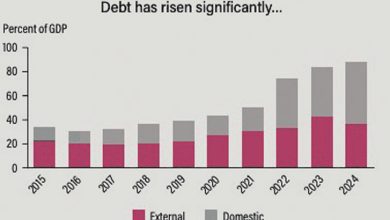MRA rolls out tax stamps on import declarations
Malawi Revenue Authority (MRA) has fully integrated the Automated System for Customs Data and Kalondola (excise tax stamp) System to streamline import declarations and excise stamp requirements for imports.
MRA acting head of corporate affairs Wilma Chalulu was responding to an inquiry on Wednesday regarding a statement the tax agency issued on February 17 this year on the integration of the two systems to improve compliance.

She said: “Yes, the integration is fully operational. All import declarations for the affected tariff lines now require tax stamps.
“This requirement ensures a streamlined process and supports the integrity of the importation process, marking a significant step towards improving compliance and revenue collection.”
Chalulu said the integration has ensured that all import declarations for the specified tariff lines are accompanied by tax stamps, adding that this will enhance revenue collection and reduce illicit trade.
“Additionally, the integration of the systems has improved operational efficiency by streamlining the overall customs process,” she said.
MRA rolled out the tax stamps dubbed Kalondola and implemented it in two phases. The first phase was effective May 1 2024 covering cigarettes, alcoholic beverages such as beers, wines, spirits, whisky, opaque beer and non-alcoholic beverages.
The second phase on July 1 targeted bottled water, carbonated soft drinks, drinks made from cereals, energy drinks, fermented sweet tea, lotion and glycerine.
Chalulu said MRA technical team in collaboration with SICPA Malawi, a technology partner for the Kalondola system, are collaborating to ensure minimal disruption and continued smooth implementation of the system by providing timely updates and offering support to stakeholders.
MRA deputy commissioner for domestic taxes Kondwani Sauti Phiri has commended manufacturers and importers for embracing the digital excise tax stamps introduced to boost revenue collection and curb consumption of hazardous goods.
He said already, companies have ordered more than 170 million digital tax stamps, which will not only enhance tax compliance, but also protect local industries from unfair competition caused by smuggling, counterfeit goods and illicit trade.
SICPA Malawi in November and December last year trained 60 MRA officers nationwide in theoretical and practical sessions, including field visits to Mchinji One-Stop-Border Post to evaluate adherence to excise tax stamp regulations among customs border officials and importers.
In 2009, Tanzania rolled out the digital tax stamps, heralding an end to physical stamps, whose use has been linked to incidents of tax evasion and counterfeiting, according to the International Monetary Fund (IMF).
The global lender praised digital tax stamps for their role in transforming tax collection in Tanzania.
Tax stamps has several benefits both to individuals and the country, according to MRA, adding that for consumers, tax stamps help to verify the authenticity of products particularly excisable goodsl, protecting consumers from potentially harmful counterfeits.





